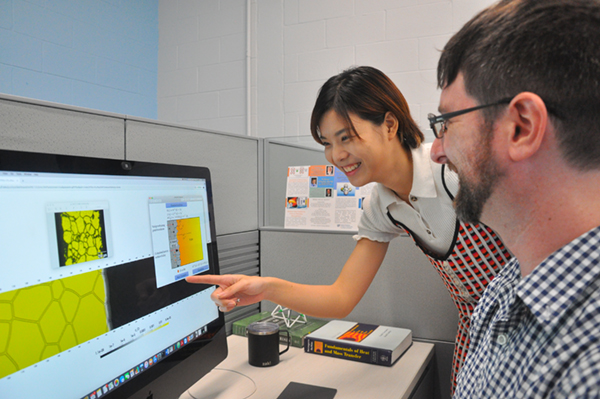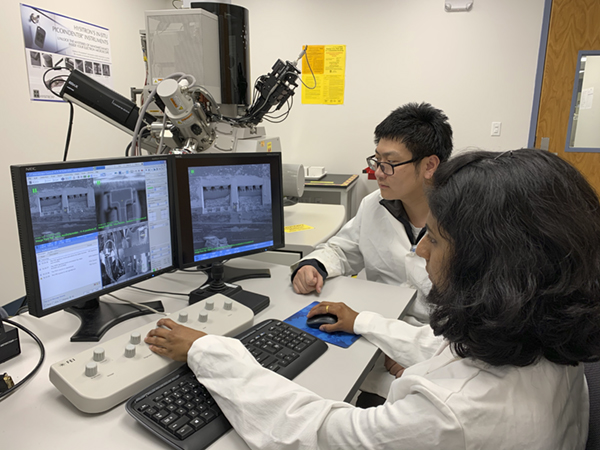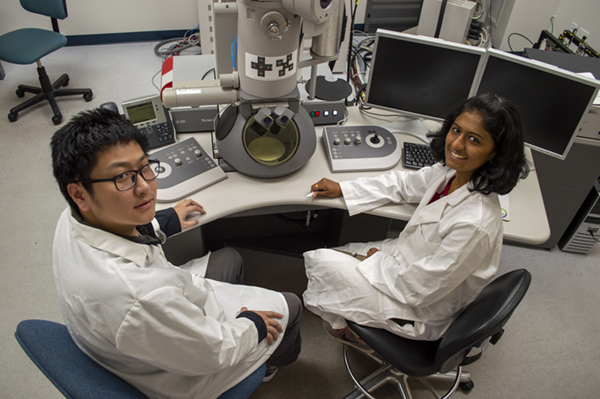Nuclear fuels and materials is the study of material behavior in radiation and reactor environments, including defect formation and evolution, fission product behavior, environmental degradation, and high-temperature behavior. At UF, we apply experimental and computational approaches to investigate oxidation and corrosion, light-water reactor (LWR) and advanced fuel behavior, radiation damage in 2D and functional materials, and radiation behavior of structural materials. We use advanced facilities at UF, including microscopy facilities for radioactive materials and the HiperGator supercomputer.
Assel Aitkaliyeva, Ph.D.
Assistant Professor
Inside a Nuclear Fuels and Materials Lab




